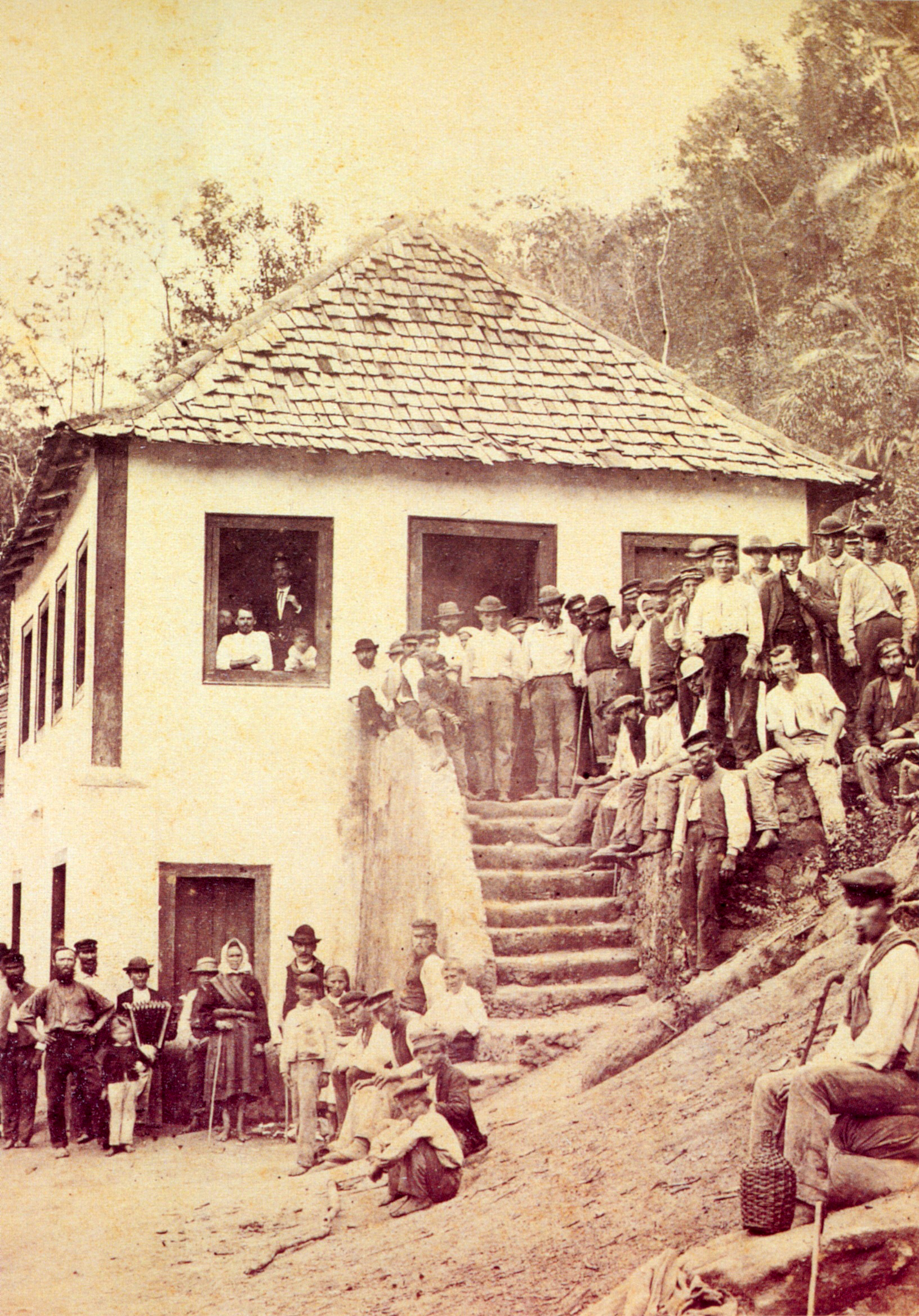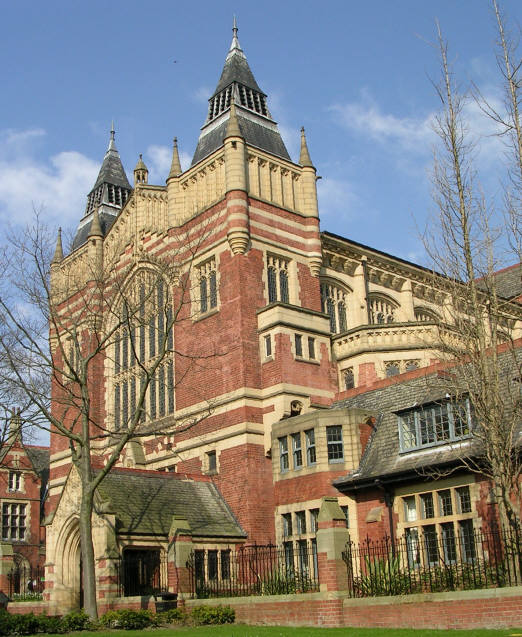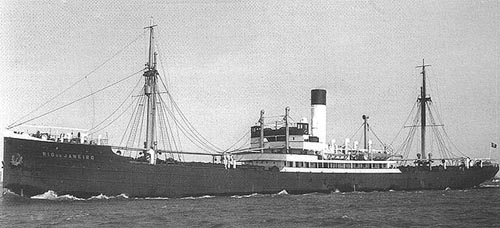|
Maritime And Colonial League
The Maritime and Colonial League (Polish: ''Liga Morska i Kolonialna'') was a mass Polish social organization, created in 1930 out of the Maritime and River League (''Liga Morska i Rzeczna''). In the late 1930s it was directed by general Mariusz Zaruski and its purpose was to educate the Polish nation about maritime issues. It also actively supported the development of both a merchant fleet and large navy, as well as the creation of Polish colonies and overseas possessions. Paul N. Hehn, ''A low dishonest decade: the great powers, Eastern Europe, and the economic origins of World War II, 1930–1941'', Continuum International Publishing Group, 2005, Google Print, p.70/ref> Among countries regarded as suitable for Polish overseas settlements, were such nations as Brazil ( Paraná), Peru, Liberia, Portuguese Mozambique and French possessions in Africa, such as Madagascar. The organization enjoyed widespread popularity and in 1939 had around one million members. Origins The roots ... [...More Info...] [...Related Items...] OR: [Wikipedia] [Google] [Baidu] |
Second Polish Republic
The Second Polish Republic, at the time officially known as the Republic of Poland, was a country in Central and Eastern Europe that existed between 7 October 1918 and 6 October 1939. The state was established in the final stage of World War I. The Second Republic was taken over in 1939, after it was invaded by Nazi Germany, the Soviet Union, and the Slovak Republic, marking the beginning of the European theatre of the Second World War. The Polish government-in-exile was established in Paris and later London after the fall of France in 1940. When, after several regional conflicts, most importantly the victorious Polish-Soviet war, the borders of the state were finalized in 1922, Poland's neighbours were Czechoslovakia, Germany, the Free City of Danzig, Lithuania, Latvia, Romania, and the Soviet Union. It had access to the Baltic Sea via a short strip of coastline known as the Polish Corridor on either side of the city of Gdynia. Between March and August 1939, Poland a ... [...More Info...] [...Related Items...] OR: [Wikipedia] [Google] [Baidu] |
Stefan Strzemieński
Stefan Marian Strzemieński was a general of the Polish Army, who participated in the Polish September Campaign. Born in 1885, he gained the command of a cavalry brigade in the early 1920s, and then of the garrison of Warsaw. Strzemieński retired in 1932, but was recalled to the army in 1939, becoming commandant of the Operational Group Dubno. Strzemieński was taken prisoner by the Germans and passed the remainder of the war in a POW POW is "prisoner of war", a person, whether civilian or combatant, who is held in custody by an enemy power during or immediately after an armed conflict. POW or pow may also refer to: Music * P.O.W (Bullet for My Valentine song), "P.O.W" (Bull ... camp. He was released in 1945, he died in 1955. The location of neither his birth nor his death is known. References 1885 births 1955 deaths Polish generals Polish military personnel of World War II {{Poland-mil-bio-stub ... [...More Info...] [...Related Items...] OR: [Wikipedia] [Google] [Baidu] |
Espírito Santo
Espírito Santo (; ) is a state in southeastern Brazil. Its capital is Vitória, and its largest city is Serra. With an extensive coastline, the state hosts some of the country's main ports, and its beaches are significant tourist attractions. The state is divided into 78 municipalities. The capital, Vitória, is located on an island, which borders the municipalities of Vila Velha, Cariacica, and Serra. These municipalities, plus the outer cities of Fundão and Guarapari, constitute the state's main metro area. In the northern extremes of Espírito Santo is Itaúnas, in the municipality of Conceição da Barra, which is a tourist location known for its sand dunes and forró tradition. The Captaincy of Espírito Santo was carved out of the Captaincy of Bahia in the 18th century, during the colonial rule of Brazil, and named after a 16th-century captaincy covering roughly the same area of coast. Following the elevation of Brazil to a constituent kingdom of the Un ... [...More Info...] [...Related Items...] OR: [Wikipedia] [Google] [Baidu] |
University Of Leeds
The University of Leeds is a public research university in Leeds, West Yorkshire, England. It was established in 1874 as the Yorkshire College of Science. In 1884, it merged with the Leeds School of Medicine (established 1831) and was renamed Yorkshire College. It became part of the federal Victoria University (UK), Victoria University in 1887, joining Owens College (which became the University of Manchester) and University College Liverpool (which became the University of Liverpool).Charlton, H. B. (1951) ''Portrait of a University''. Manchester: U. P.; chap. IV In 1904, a royal charter was granted to the University of Leeds by Edward VII, King Edward VII. Leeds is the list of universities in the United Kingdom by enrolment, tenth-largest university in the United Kingdom by total enrolment and receives over 68,000 undergraduate applications per year, making it the fourth-most popular university (behind University of Manchester, Manchester, University College London and King's C ... [...More Info...] [...Related Items...] OR: [Wikipedia] [Google] [Baidu] |
ORP Orzeł (1938)
ORP ''Orzeł'' was an ''Orzeł'' class submarine of the Polish Navy that served during World War II. Construction ''Orzeł'' was laid down 14 August 1936 at the Dutch shipyard De Schelde, as Job No. 205; launched on 15 January 1938, and commissioned on 2 February 1939. She was a modern design (designed by the joint venture of Polish and Dutch engineers), albeit quite large for the shallow waters of the Baltic Sea. World War II Polish Campaign At the beginning of the invasion of Poland ''Orzeł'' was docked in Oksywie. As per the Worek Plan, the submarine was deployed on patrol in a designated strategic zone of the Baltic Sea. The crew received orders to attack the pre-dreadnought ''Schleswig-Holstein'', should it leave Danzig. With the situation rapidly deteriorating, ''Orzel'' abandoned its sector on 4 September and began to withdraw into the Baltic Sea. The submarine was attacked by the German minesweepers ''M3'' and ''M4'' and was damaged but evaded destruction that e ... [...More Info...] [...Related Items...] OR: [Wikipedia] [Google] [Baidu] |
Submarine
A submarine (often shortened to sub) is a watercraft capable of independent operation underwater. (It differs from a submersible, which has more limited underwater capability.) The term "submarine" is also sometimes used historically or informally to refer to remotely operated vehicles and Autonomous underwater vehicle, robots, or to medium-sized or smaller vessels (such as the midget submarine and the wet sub). Submarines are referred to as ''boats'' rather than ''ships'' regardless of their size. Although experimental submarines had been built earlier, submarine design took off during the 19th century, and submarines were adopted by several navies. They were first used widely during World War I (1914–1918), and are now used in many navy, navies, large and small. Their military uses include: attacking enemy surface ships (merchant and military) or other submarines; aircraft carrier protection; Blockade runner, blockade running; Ballistic missile submarine, nuclear deterrenc ... [...More Info...] [...Related Items...] OR: [Wikipedia] [Google] [Baidu] |
Polish Zloty
Polish may refer to: * Anything from or related to Poland, a country in Europe * Polish language * Polish people, people from Poland or of Polish descent * Polish chicken * Polish brothers (Mark Polish and Michael Polish, born 1970), American twin screenwriters * Kevin Polish, an American Paralympian archer Polish may refer to: * Polishing, the process of creating a smooth and shiny surface by rubbing or chemical action ** French polishing, polishing wood to a high gloss finish * Nail polish * Shoe polish * Polish (screenwriting), improving a script in smaller ways than in a rewrite See also * * * Polishchuk (surname) * Polonaise (other) A polonaise ()) is a stately dance of Polish origin or a piece of music for this dance. Polonaise may also refer to: * Polonaises (Chopin), compositions by Frédéric Chopin ** Polonaise in A-flat major, Op. 53 (, ''Heroic Polonaise''; ) * Polon ... {{Disambiguation, surname Language and nationality disambiguation pages ... [...More Info...] [...Related Items...] OR: [Wikipedia] [Google] [Baidu] |
Portuguese Empire
The Portuguese Empire was a colonial empire that existed between 1415 and 1999. In conjunction with the Spanish Empire, it ushered in the European Age of Discovery. It achieved a global scale, controlling vast portions of the Americas, Africa and various islands in Asia and Oceania. It was one of the most powerful empires of the early modern period, while at its greatest extent in 1820, covering 5.5 million square km ( million square miles), making it among the List of largest empires, largest empires in history. Composed of colonialism, colonies, Factory (trading post)#Portuguese feitorias (c. 1445), factories, and later Territory#Overseas territory, overseas territories, it was the longest-lived colonial empire in history, from the conquest of Ceuta in North Africa in 1415 to the handover of Macau to China in 1999. The power and influence of the Kingdom of Portugal would eventually expand across the globe. In the wake of the Reconquista, Portuguese maritime exploration, Port ... [...More Info...] [...Related Items...] OR: [Wikipedia] [Google] [Baidu] |
Belgian Colonial Empire
Belgium controlled several territories and concessions during the colonial era, principally the Belgian Congo (modern DR Congo) from 1908 to 1960, Ruanda-Urundi (modern Rwanda and Burundi) from 1922 to 1962, and Lado Enclave (modern Central Equatoria province in South Sudan) from 1894 to 1910. It also had small concessions in Guatemala (1843–1854) and Belgian concession of Tianjin in China (1902–1931) and was a co-administrator of the Tangier International Zone in Morocco. Roughly 98% of Belgium's overseas territory was just one colony (about 76 times larger than Belgium itself) – known as the Belgian Congo. The colony was founded in 1908 following the transfer of sovereignty from the Congo Free State, which was the personal property of Belgium's king, Leopold II. The violence used by Free State officials against indigenous Congolese and the ruthless system of economic extraction had led to intense diplomatic pressure on Belgium to take official control of the countr ... [...More Info...] [...Related Items...] OR: [Wikipedia] [Google] [Baidu] |
Invasion Of Poland
The invasion of Poland, also known as the September Campaign, Polish Campaign, and Polish Defensive War of 1939 (1 September – 6 October 1939), was a joint attack on the Second Polish Republic, Republic of Poland by Nazi Germany, the Slovak Republic (1939–1945), Slovak Republic, and the Soviet Union, which marked the beginning of World War II. The German invasion began on 1 September 1939, one week after the signing of the Molotov–Ribbentrop Pact between Germany and the Soviet Union, and one day after the Supreme Soviet of the Soviet Union had approved the pact. The Soviet invasion of Poland, Soviets invaded Poland on 17 September. The campaign ended on 6 October with Germany and the Soviet Union dividing and annexing the whole of Poland under the terms of the German–Soviet Frontier Treaty. The aim of the invasion was to disestablish Poland as a sovereign country, with its citizens destined for The Holocaust, extermination. German and Field Army Bernolák, Slovak forces ... [...More Info...] [...Related Items...] OR: [Wikipedia] [Google] [Baidu] |
League Of Nations
The League of Nations (LN or LoN; , SdN) was the first worldwide intergovernmental organisation whose principal mission was to maintain world peace. It was founded on 10 January 1920 by the Paris Peace Conference (1919–1920), Paris Peace Conference that ended the World War I, First World War. The main organisation ceased operations on 18 April 1946 when many of its components were relocated into the new United Nations (UN) which was created in the aftermath of the World War II, Second World War. As the template for modern global governance, the League profoundly shaped the modern world. The League's primary goals were stated in its Covenant of the League of Nations, eponymous Covenant. They included preventing wars through collective security and Arms control, disarmament and settling international disputes through negotiation and arbitration. Its other concerns included labour conditions, just treatment of native inhabitants, Human trafficking, human and Illegal drug tra ... [...More Info...] [...Related Items...] OR: [Wikipedia] [Google] [Baidu] |






